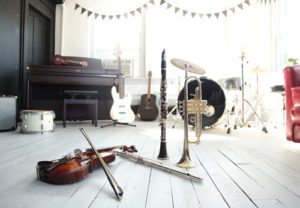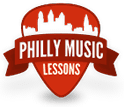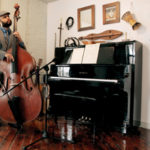Five Underrated Instruments
5 Underrated Instruments for Your Child to Learn
 Whether your child wants to join their school band or orchestra, or if you want your child to take private music lessons, it can be difficult to select the right instrument. Oftentimes, students and parents alike only consider instruments that are popular, age appropriate, and/or affordable. While this criteria is reasonable, there are a number of underrated instruments for your child to learn that are also age appropriate and inexpensive.
Whether your child wants to join their school band or orchestra, or if you want your child to take private music lessons, it can be difficult to select the right instrument. Oftentimes, students and parents alike only consider instruments that are popular, age appropriate, and/or affordable. While this criteria is reasonable, there are a number of underrated instruments for your child to learn that are also age appropriate and inexpensive.
Take a moment to consider these instruments and their benefits.
- Viola
A lesser known string instrument, the viola closely resembles the violin in every way it counts. In fact, many viola players are able to use their skills to play the violin later on. How? Not only are both of these instruments held and played the same way, they share three of the same strings. While the violin has one higher string, the viola has one lower string.The main difference between the two instruments is the clef they use. Violists are the only instrumentalists who regularly use the alto clef. Therefore, those who play the viola tend to have phenomenal music reading and music theory skills. Although the viola is often neglected for its popular sibling the violin, it’s one of the best instruments for your child to learn from an educational and opportunity standpoint. Less competition amongst violists means more opportunities to play.
- Trumpet
While trumpets are well-known instruments, they are not well selected by kids looking to learn an instrument for the first time. This could be because trumpets are considered one of the most difficult instruments to play. Not only does it require good breath and finger coordination, it is a loud instrument. Furthermore, trumpets are often given the melody, making precise intonation important. If a trumpet goes out of tune, everyone will notice. This makes it a great instrument for your child to learn if they enjoy a challenge or being the center of attention.
- Trombone
The trombone – even less popular than the trumpet – offers a number of advantages to your child. Like many of the instruments on this list, less competition means your child will have more opportunities to play the trombone. The trombone has the unique benefit of being valuable to just about every kind of music group as well. They’re heard in bands, orchestras, symphonies, jazz bands, and so on. While the trombone can be a difficult instrument to care for, it can be a good opportunity for your child to learn about the importance of maintenance and respect for valuable items.
- Flute
Considered one of the oldest woodwind instruments, the flute is an easy, affordable, and versatile instrument for your child to learn. It is considered versatile in terms of both portability and usage. Learning the flute allows students to pick up other instruments later on as well, such as the piccolo or the saxophone. Its ease and pleasing tone make it a good instrument to develop your child’s confidence and foundational understanding of music.
- Clarinet
The clarinet is often neglected over its more popular counterpart, the saxophone. Few people realize the similarities between these two instruments, but a soprano saxophone even looks similar to a clarinet. However, the saxophone is considered easier to play than the clarinet, meaning the clarinet offers an educational advantage to your child. Furthermore, just like the viola to the violin, students who learn the clarinet can easily learn the saxophone later on. Switching the other way around, however, is more challenging.
Every Student Is Unique
It can be difficult to choose an instrument for you or your child when you’re just starting out, though we hope you will seriously consider these underrated instruments for your child to learn. Each one offers unique benefits to the player, and by virtue of being underrated, your child will often have more opportunities to play as a result. This could include special bands or orchestras, competitions, or even scholarships. No matter what instrument your child chooses to play though, we hope they enjoy a lifelong relationship to music!

